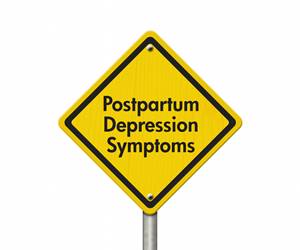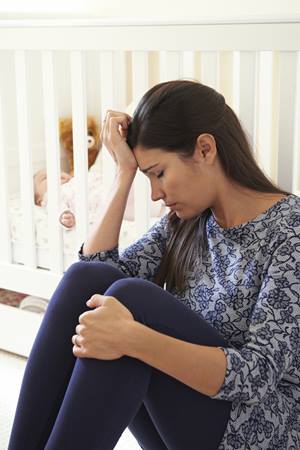What every new parent needs to know about postpartum depression
 Having a baby can be one of the happiest times of one’s life, but it’s not unusual for a mom to also experience some not-so-good feelings during this time. Approximately 80% of moms will experience “baby blues,” a mild state of emotional ups and downs that is of short duration and resolves on its own.
Having a baby can be one of the happiest times of one’s life, but it’s not unusual for a mom to also experience some not-so-good feelings during this time. Approximately 80% of moms will experience “baby blues,” a mild state of emotional ups and downs that is of short duration and resolves on its own.
How to recognize when it’s more than the “baby blues”
One in 10 women, however, will experience some form of postpartum depression, a type of depression that can affect women for several weeks or even months after childbirth and can include some of the following common symptoms:
- unexplained sadness or frequent episodes of crying
- poor concentration or “fogginess”
- being overwhelmed
- difficulty falling or staying asleep even after the baby is asleep
- hopelessness or guilt
- difficulty bonding with baby
And even more serious symptoms such as:
- thoughts or hurting yourself, your baby, or others
- hearing or seeing things that others do not see or hear
- feeling like you are not in your own body or connected to reality
Sadly, suicide is among the leading causes of maternal death. If you are experiencing any of these serious symptoms, seek help immediately. Call 911 or visit your nearest Emergency Department.
Additional factors that can contribute to or worsen postpartum depression
 For some people, pregnancy can increase symptoms of depression, anxiety, and other mood disorders if you have a history of them.
For some people, pregnancy can increase symptoms of depression, anxiety, and other mood disorders if you have a history of them.
A traumatic birth experience can also increase your risk for a postpartum mood disorder. Remember, trauma means something different to everyone, so be careful not to minimize what you have been through. It can be hard to ask for help, and many worry that they will be judged. Find a person you trust and feel safe with and share with them what you have been going through. Moms don’t have to go through this alone, and there is help out there!
A mom that has lack of support from her spouse/partner and/or family, a history of depression or other mental health conditions, or is experiencing multiple current life stressors can be at a higher risk for developing symptoms of postpartum depression. Sometimes moms think that their family would be better off without them. Remember, this is the depression talking! It isn’t true.
What can I do now?
The good news (yes, there is good news!) is that it’s is not your fault that you may be feeling this way and with help and support, you can start to feel better. If you’re feeling any of the above symptoms or if you’re feeling not quite “yourself,” please talk to your doctor, your partner, and/or a trusted friend and let them know how you are feeling as it is the first step you can make to start to feel better.
Here are some additional tips:
- Eat a balanced diet and stay hydrated.
- Get a little bit of fresh air daily.
- Allow yourself to receive some help and support.
- Be kind to yourself- practice even small acts of self-care.
- Do some things you enjoyed doing pre-baby (even if they are small things!).
Where can I reach out for additional support?
Here are a few places to connect:
Mother’s Matter- This is an emotional support group for pregnant and postpartum women that is facilitated by a licensed mental health professional certified in maternal mental health. The group meets on Fridays at 10:30 a.m. at the Orlando Health Resident Practice located at 89 West Copeland Dr., Orlando, FL 32806 (3rd floor). The group is free of charge. Please call for additional information 321-841-5615.
Postpartum Support International- Connect with local support volunteers and resources or participate in online video chat support groups, “Chat with an Expert” phone forums for Moms and Dads or utilize an online directory of therapists in your area. Connect at postpartum.net or call 1-800-944-4PPD.







